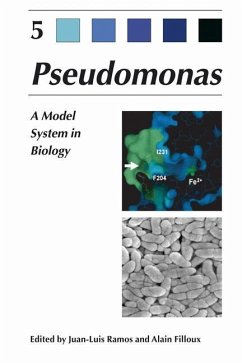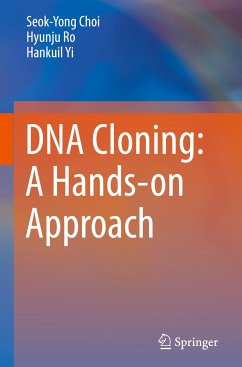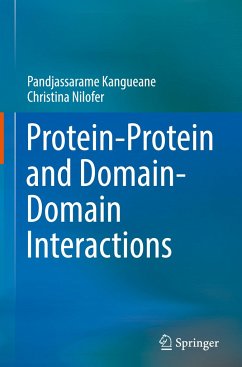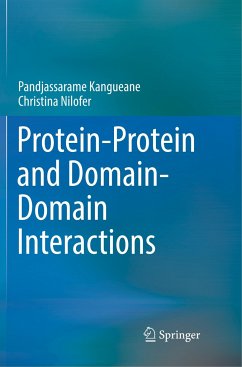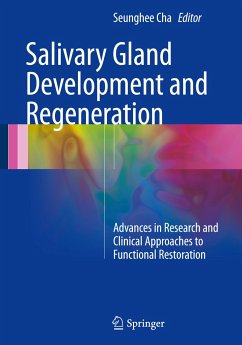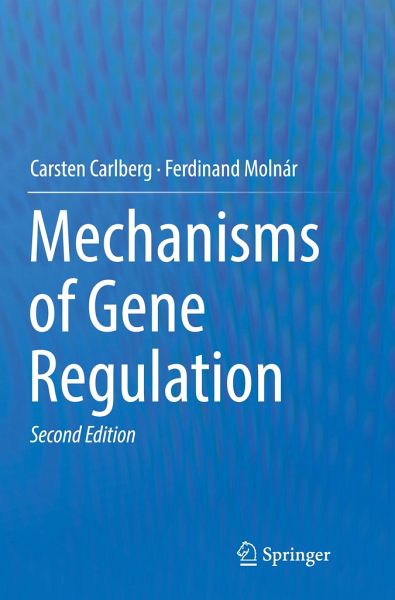
Mechanisms of Gene Regulation
Versandkostenfrei!
Versandfertig in 6-10 Tagen
61,99 €
inkl. MwSt.
Weitere Ausgaben:

PAYBACK Punkte
31 °P sammeln!
This textbook aims to describe the fascinating area of eukaryotic gene regulation for graduate students in all areas of the biomedical sciences. Gene expression is essential in shaping the various phenotypes of cells and tissues and as such, regulation of gene expression is a fundamental aspect of nearly all processes in physiology, both in healthy and in diseased states. This pivotal role for the regulation of gene expression makes this textbook essential reading for students of all the biomedical sciences, in order to be better prepared for their specialized disciplines.A complete understand...
This textbook aims to describe the fascinating area of eukaryotic gene regulation for graduate students in all areas of the biomedical sciences. Gene expression is essential in shaping the various phenotypes of cells and tissues and as such, regulation of gene expression is a fundamental aspect of nearly all processes in physiology, both in healthy and in diseased states. This pivotal role for the regulation of gene expression makes this textbook essential reading for students of all the biomedical sciences, in order to be better prepared for their specialized disciplines.
A complete understanding of transcription factors and the processes that alter their activity is a major goal of modern life science research. The availability of the whole human genome sequence (and that of other eukaryotic genomes) and the consequent development of next-generation sequencing technologies have significantly changed nearly all areas of the biological sciences. For example, the genome-wide location of histone modifications and transcription factor binding sites, such as provided by the ENCODE consortium, has greatly improved our understanding of gene regulation. Therefore, the focus of this book is the description of the post-genome understanding of gene regulation.
The purpose of this book is to provide, in a condensed form, an overview on the present understanding of the mechanisms of gene regulation. The authors are not aiming to compete with comprehensive treatises, but rather focus on the essentials. Therefore, the authors have favored a high figure-to-text ratio following the rule stating that "a picture tells more than thousand words".
The content of the book is based on the lecture course, which is given by Prof. Carlberg since 2001 at the University of Eastern Finland in Kuopio. The book is subdivided into 4 sections and 13 chapters. Following the Introduction there are three sections, which take a view on gene regulation from the perspective of transcription factors, chromatin and non-coding RNA, respectively. Besides its value as a textbook, Mechanisms of Gene Regulation will be a useful reference for individuals working in biomedical laboratories.
A complete understanding of transcription factors and the processes that alter their activity is a major goal of modern life science research. The availability of the whole human genome sequence (and that of other eukaryotic genomes) and the consequent development of next-generation sequencing technologies have significantly changed nearly all areas of the biological sciences. For example, the genome-wide location of histone modifications and transcription factor binding sites, such as provided by the ENCODE consortium, has greatly improved our understanding of gene regulation. Therefore, the focus of this book is the description of the post-genome understanding of gene regulation.
The purpose of this book is to provide, in a condensed form, an overview on the present understanding of the mechanisms of gene regulation. The authors are not aiming to compete with comprehensive treatises, but rather focus on the essentials. Therefore, the authors have favored a high figure-to-text ratio following the rule stating that "a picture tells more than thousand words".
The content of the book is based on the lecture course, which is given by Prof. Carlberg since 2001 at the University of Eastern Finland in Kuopio. The book is subdivided into 4 sections and 13 chapters. Following the Introduction there are three sections, which take a view on gene regulation from the perspective of transcription factors, chromatin and non-coding RNA, respectively. Besides its value as a textbook, Mechanisms of Gene Regulation will be a useful reference for individuals working in biomedical laboratories.



